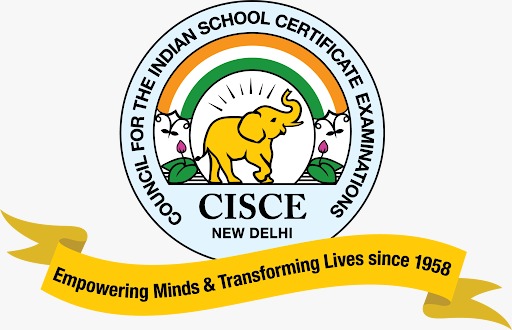Inclusive education is an approach that aims to provide every student, regardless of their background or ability, with equal access to quality education. It fosters an environment where diversity is respected, and learning barriers are minimized to create a supportive setting for all. Inclusive education has gained significant attention in recent years due to its positive impact on students, educators, and communities as a whole. This blog delves into what inclusive education is, why it’s essential, its core principles, and the benefits it brings to individuals and society.This approach values diversity as a strength, not a challenge, and focuses on removing barriers to learning and participation, so that every student feels valued and empowered to reach their potential.
Why is There a Need for Inclusive Education?
The need for inclusive education arises from its role in promoting equity, empathy, and societal cohesion. Here are some of the critical reasons why inclusive education is necessary:
1. Equality and Fairness
Inclusive education ensures that every student has access to quality education, regardless of their abilities, backgrounds, or challenges. By doing so, it promotes a fair learning environment where every student can grow and succeed.
2. Diverse Perspectives and Enrichment
Inclusive classrooms bring together students from various backgrounds and abilities, enriching the learning environment. Exposure to different perspectives enhances critical thinking, problem-solving skills, and cultural awareness among all students.
3. Social Integration and Empathy
Inclusion promotes social integration by fostering relationships between students of different abilities. This interaction helps build empathy, understanding, and respect, which are essential life skills in an increasingly diverse society.
4. Improved Academic Outcomes
Research shows that inclusive education benefits all students, not just those with disabilities or special needs. Inclusive practices are associated with improved academic performance, better social skills, and higher self-esteem for all students.
5. Preparation for the Real World
Inclusive education prepares students for a diverse world where they will work and interact with people from varied backgrounds and abilities. This experience teaches students to value differences and work collaboratively, which are crucial skills for personal and professional success.
Principles of Inclusive Education
Inclusive education is guided by core principles that focus on accessibility, respect, and collaboration. Let’s explore these principles in detail:
1. Equity and Access
This principle emphasizes that all students should have equal access to educational opportunities. Resources and support are allocated to meet diverse needs, creating a level playing field for all.
2. Respect for Diversity
Inclusive education celebrates differences in culture, ability, language, and background. By fostering an environment where every student’s unique characteristics are valued, it cultivates a sense of belonging and acceptance.
3. Differentiated Instruction
Differentiated instruction tailors teaching strategies to meet the unique learning needs of students. By using various methods—like visual aids, hands-on activities, and auditory resources—educators ensure that all students can engage with the material and succeed.
4. Collaboration and Teamwork
Effective inclusion requires strong collaboration between educators, families, and communities. Open communication and teamwork help create individualized support plans, ensuring each student receives the necessary assistance.
5. Participation and Engagement
Inclusive education encourages all students to participate fully in academic, social, and extracurricular activities. This engagement fosters a sense of belonging and investment in the learning process.
6. High Expectations
Holding high expectations for all students is fundamental to inclusive education. Believing that every student can succeed encourages them to reach their full potential and fosters a growth-oriented mindset.
7. Individualized Support
This principle focuses on providing tailored support, such as specialized instruction or assistive technology, to meet each student’s unique needs and help them overcome learning barriers.
8. Positive Learning Environment
A positive learning environment is crucial for effective inclusion. This principle emphasizes creating a safe and supportive classroom where students feel valued, respected, and encouraged.
9. Ongoing Assessment and Feedback
Continuous assessment and constructive feedback help educators adjust their methods to support student progress. Regular evaluations guide instruction, ensuring that all students can achieve their best.
10. Professional Development
Ongoing professional development is vital for teachers to stay updated on inclusive practices. Training helps educators develop the skills needed to support diverse learners effectively.
These principles create a foundation for an inclusive educational environment that empowers all students to achieve their best.
Benefits of Inclusive Education
Inclusive education brings numerous benefits that extend beyond academic success, enhancing social, emotional, and cognitive skills in students. Here are some key advantages:
1. Enhanced Academic Performance
Students in inclusive classrooms tend to perform better academically. The individualized support and diverse teaching strategies address various learning needs, resulting in improved understanding and performance.
2. Better Social and Communication Skills
Interaction with peers of different abilities improves social and communication skills. Students learn to work together, respect differences, and support one another, fostering stronger interpersonal relationships.
3. Increased Empathy and Understanding
Inclusive settings encourage students to appreciate and respect diversity, which builds empathy and understanding. These qualities are essential for building a compassionate society.
4. Higher Self-Esteem and Confidence
Inclusion promotes a positive self-image by ensuring that all students are valued members of the classroom. This sense of belonging boosts self-esteem and confidence, motivating students to participate actively.
5. Improved Problem-Solving and Adaptability
Exposure to different perspectives helps students develop problem-solving skills and adaptability. These abilities are valuable in navigating complex real-world situations.
Barriers to Inclusive Education
While inclusive education has many benefits, its implementation faces several challenges:
1. Lack of Resources
Limited financial resources can hinder inclusive practices. Schools may lack access to necessary assistive technology or additional staff, which are essential for supporting diverse learners.
2. Inadequate Teacher Training
Teachers need specialized training to effectively implement inclusive practices. Without sufficient training, they may struggle to meet the needs of all students.
3. Attitudinal Barriers
Negative attitudes or biases towards students with special needs can undermine inclusion efforts. Changing these mindsets requires awareness and advocacy.
4. Rigid Curriculum
A standardized curriculum that doesn’t allow for flexibility can be a barrier. Inclusive education requires adaptability to accommodate different learning styles.
5. Physical Accessibility Issues
Inaccessible school facilities pose challenges for students with physical disabilities. Schools need to provide accessible infrastructure to support inclusion.
6. Limited Collaboration
Effective inclusion requires teamwork between general and special education teachers. Lack of collaboration can hinder support plans for students.
Conclusion
Inclusive education embodies the values of equality, respect, and empowerment. By welcoming and supporting all students, inclusive education not only benefits individuals but also enriches society by promoting empathy, diversity, and social cohesion. Preparing students for a diverse world, inclusive education equips them with essential skills, resilience, and understanding. Ultimately, it stands as a powerful approach to fostering a more equitable and compassionate society where every individual has the opportunity to learn, grow, and contribute meaningfully.
FAQs
Inclusive education is an approach where all students, regardless of their abilities or backgrounds, learn together in the same classrooms. This system values diversity and ensures that every student has equal access to learning opportunities by addressing individual needs and removing barriers to participation.
Inclusive education is important because it promotes equality, respect, and empathy among students. It prepares them for real-world diversity, improves academic outcomes, and fosters a supportive environment where everyone feels valued. This approach contributes to a more cohesive and inclusive society.
Key principles of inclusive education include equity and access, respect for diversity, differentiated instruction, collaboration and teamwork, participation and engagement, high expectations for all, individualized support, a positive learning environment, ongoing assessment, and professional development for educators.






